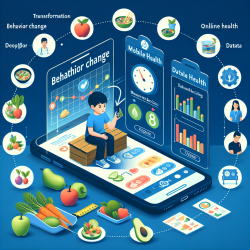As a speech-language pathologist dedicated to data-driven decisions, it's essential to continually seek evidence-based practices to improve outcomes for children. A recent study titled Group-based caregiver support interventions for children living with disabilities in low-and-middle-income countries: Narrative review and analysis of content, outcomes, and implementation factors by He et al. (2024) provides valuable insights into how group-based interventions can benefit caregivers and children with disabilities in low-and-middle-income countries (LMICs).
This blog will highlight key findings from the study and offer practical steps for practitioners to implement these strategies in their practice.
Key Findings from the Research
- Content of Interventions: The study found that successful caregiver support interventions often included content on child behavioral management, activities of daily living (ADLs), and parental stress reduction strategies. These components are crucial in promoting optimal child development and caregiver well-being.
- Mode of Delivery: Most interventions were delivered in-person, often supplemented with home visits or online components. Group discussions and hands-on activities were common, facilitating active learning and peer support.
- Outcomes: Interventions led to significant improvements in caregiver coping skills, parenting skills, and insight into the child's condition. For children, improvements were noted in behavior, communication, and physical health.
- Barriers and Enablers: Time constraints, lack of family support, and poverty were significant barriers. Supportive facilitators and relevant intervention content were critical enablers of success.
Practical Steps for Implementation
Based on these findings, here are some actionable steps practitioners can take to implement effective caregiver support interventions:
- Include Relevant Content: Ensure your interventions cover essential topics such as behavioral management, ADLs, and stress reduction. Tailor the content to the specific needs of the caregivers and children you are working with.
- Utilize Diverse Delivery Methods: While in-person sessions are effective, consider incorporating home visits and online components to enhance accessibility and engagement. Group discussions and hands-on activities should be integral parts of your sessions.
- Measure Outcomes: Use standardized tools to measure both caregiver and child outcomes. This will help in assessing the effectiveness of your interventions and making necessary adjustments.
- Address Barriers: Be mindful of potential barriers such as time constraints and lack of support. Engage family members and provide flexible scheduling options to accommodate caregivers' responsibilities.
- Build Strong Partnerships: Collaborate with local organizations, healthcare providers, and community leaders to ensure the sustainability and scalability of your interventions.
Encouraging Further Research
While the study provides a solid foundation, more research is needed to explore the long-term impact and cost-effectiveness of these interventions. Practitioners are encouraged to participate in or conduct further research to continue improving the support provided to caregivers and children with disabilities.
To read the original research paper, please follow this link: Group-based caregiver support interventions for children living with disabilities in low-and-middle-income countries: Narrative review and analysis of content, outcomes, and implementation factors.










